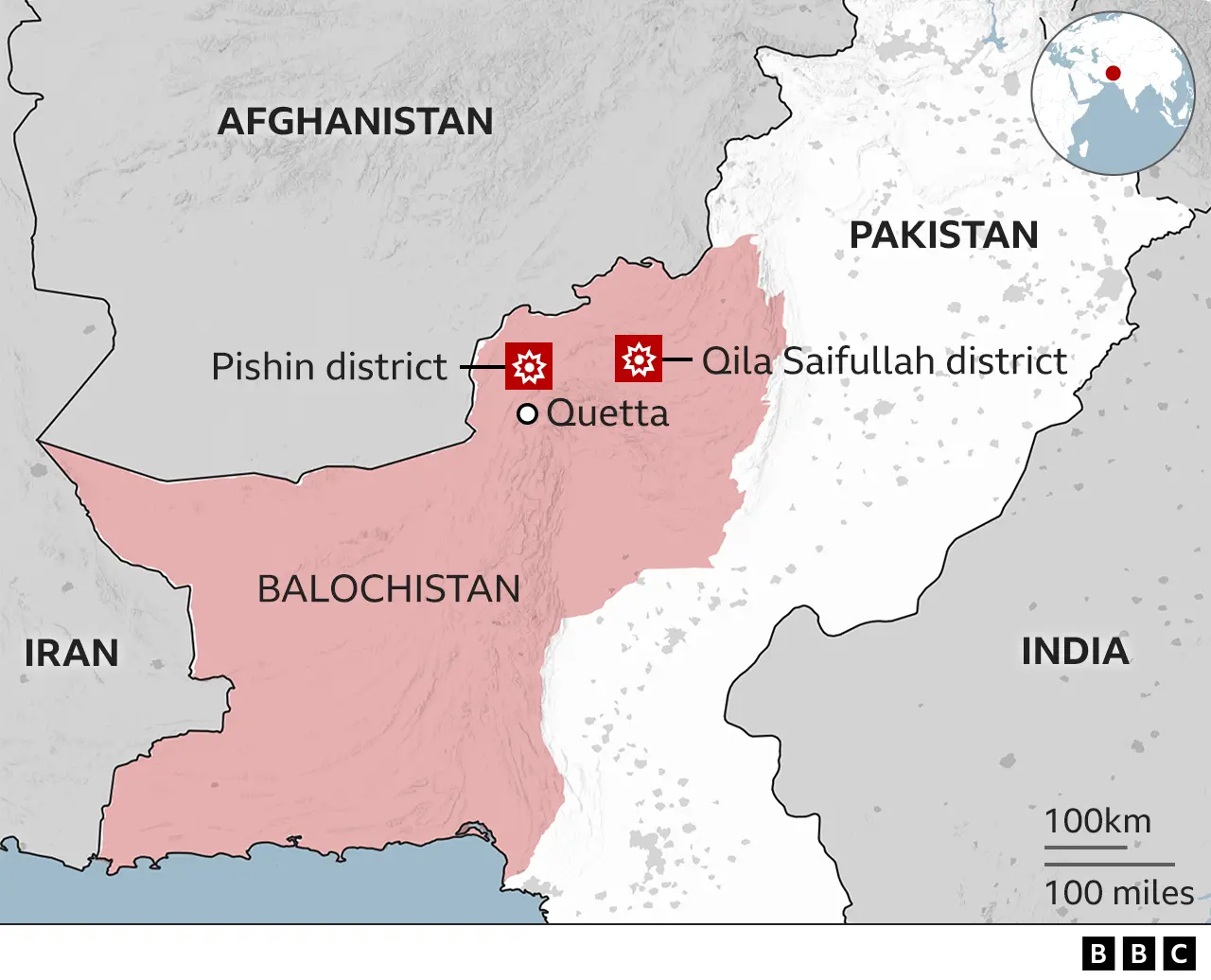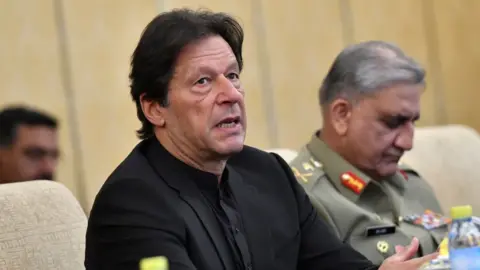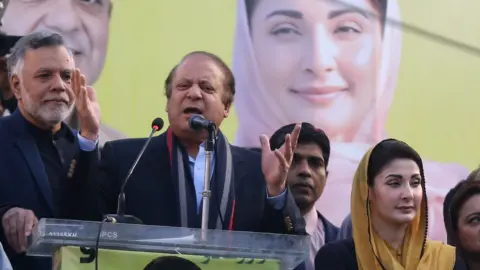Pakistan election: Two blasts kill 28 in Balochistan day before vote
Two bomb explosions near candidates' offices in the Pakistani province of Balochistan killed at least 28 people and wounded dozens on the eve of general elections, officials said.
The first blast killed 16 people in Pishin district, north of Quetta city.
The second explosion left 12 people dead in Qila Saifullah to the east. The Islamic State (IS) group said it was responsible for both attacks.
The vote has been marred by violence and claims of poll-rigging.
Former Prime Minister Imran Khan is banned from standing, jailed on corruption charges he claims are politically motivated.
IS said both of Wednesday's bombings were carried out using motorbikes rigged with explosives.
Resource-rich Balochistan - Pakistan's largest, and poorest, province - has a history of violence. It has seen a decades-long struggle for greater autonomy by various groups, some of them armed. Islamist militants, including the Pakistani Taliban (TTP), operate along the border with Afghanistan.
The bomb in Pishin, a town about 100km (62 miles) south-east of the Afghan border, went off in front of an independent candidate's party office. The provincial authorities said 25 people were also wounded.
Images on social media showed cars and motorbikes blown apart by the force of the explosion. Officials told the BBC the candidate was meeting his polling agent at the time.
The second blast targeted the election office of the JUI-F party. A senior police official told AFP news agency it took place in the main bazaar of Qila Saifullah, about 190km (120 miles) east of Quetta.
Twenty people were wounded in the incident and the number of casualties in the two attacks could rise, officials said.

There have been violent incidents in both Balochistan and Khyber Pakhtunkhwa provinces in the week before Thursday's vote, and the violence in Pishin and Qila Saifullah was not unexpected.
In mid-January, Baloch Liberation Army-Azad (BLA) insurgents released a pamphlet after claiming responsibility for bombing an election training office. The pamphlet urged people to boycott the elections. Soon after, reports of hand grenade attacks on political party offices were reported from various cities in the province.
Many voters in Balochistan feel neglected by the country's political parties, given the province has so few seats in parliament. They often feel candidates are foisted on them, with few if any links to Balochistan.
And many feel the vote is unfair. "It is a selection," numerous people told BBC Urdu in the city of Turbat last month.
 Getty Images
Getty ImagesFollowing Wednesday's attacks, the Balochistan government said Thursday's vote would proceed as planned.
"Rest assured, we will not allow terrorists to undermine or sabotage this crucial democratic process," provincial information minister Jan Achakzai posted on X, formerly Twitter.
More than 128 million voters are eligible to cast ballots in the election. In Pakistan's first-past-the-post system, 266 of 336 National Assembly seats are directly elected.
But many people are questioning the credibility of the vote as Khan and his party, the PTI, have been sidelined.
The PTI won the largest number of seats in the last general election but Khan was jailed on corruption charges last year and disqualified from running for public office. Last week he was convicted in three other cases and is facing years in prison. He says all the charges are politically motivated.
The authorities deny carrying out a crackdown, but many PTI leaders are behind bars, in hiding or have defected. Thousands of the party's supporters were rounded up after protests - at times violent - when Khan was taken into custody last year.
 EPA
EPAPTI candidates are having to run as independents following the electoral commission's decision to strip the party of its cricket bat symbol. Electoral symbols are vital in helping voters mark their ballots in a country with high rates of illiteracy.
The man tipped to win Thursday's election is three-time former PM Nawaz Sharif, who himself was behind bars at the last election. Analysts say it appears he has done a deal with the military to facilitate his return to politics.
A high turnout will be key to the PTI's chances, many analysts say. How to tackle, and who to blame for, the country's economic crisis will be high in voters' minds. Results must be announced within 14 days of the election.
Additional reporting by Caroline Davies
